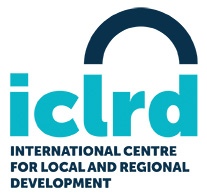Press Release:
17th October 2013
The International Centre for Local and Regional Development (ICLRD) welcomes the recent publication of ‘Framework for Co-operation: Spatial Strategies of Northern Ireland and the Republic of Ireland’. This innovative approach to strategic development is the first such spatial planning framework on the island of Ireland, and seeks to influence strategic issues around economic competitiveness, place making, environmental quality, and evidence-based decision making.
As elsewhere in Europe, economic, social and environmental activities do not stop at the Irish border but rather move north and south between the two jurisdictions and east and west to England, Scotland and Wales. This cooperation across borders has been recognised by initiatives funded by the European Union, including the INTERREG and PEACE programmes. EU policy is also now geared towards the concept of territorial cohesion across Europe, with the aim of balanced distribution of human activities across the Union.
On the island of Ireland the National Spatial Strategy (NSS) for the Republic of Ireland and the Regional Development Strategy (RDS) 2035 for Northern Ireland, as a basis for strategic investment decision-making, have a key role in promoting territorial cohesion. Spatial planning is strategic, visionary, and inclusive by nature and whilst non-statutory, it is anticipated that the Framework for Co-operation will help to position the island of Ireland to make the most of opportunities to compete in the global economy. This will require involvement from both the top-down and bottom-up, as recommended through several ICLRD research reports and adopted within the Framework for Co-operation.
Remarking on the launch of the Framework for Co-operation this week, John Driscoll, ICLRD Director, commented that:
“ICLRD has been working with local and central government, the community sector and businesses across the island of Ireland for 10 years, nurturing and supporting good governance in the pursuit of mutual economic and social progress.
The Framework for Co-operation will be particularly helpful in light of new local government reform policies and the bringing together of local authorities, cross-border bodies and the regional networks in the Irish Border Region who share common challenges and opportunities”.
Caroline Creamer, ICLRD Deputy Director, added:
“In the 2006 report for InterTradeIreland, prepared by ICLRD on how spatial strategies could better work together, an emphasis was placed on harnessing and facilitating existing structures by providing new working arrangements that energise stakeholders in the business and planning sectors. This spirit has been captured in the Framework for Co-operation that we have today.”
We look forward to continuing this relationship, particularly with the Department of Regional Development in Belfast, and the Department of Environment, Community and Local Government in Dublin and the numerous stakeholders involved in delivering the Framework.”
More information and digital copies of the Framework are available on the Department of Environment, Community, and Local Government website and the Department of Regional Development website.
Notes for Editors:
- The International Centre for Local and Regional Development (ICLRD) is a North-South-US partnership programme created to explore and expand the contribution that planning and the development of physical, social and economic infrastructures can make to improving the lives of people in both Irish jurisdictions – particularly those in divided and disadvantaged areas – and thus to peace-building and reconciliation on the island.
- The ICLRD provides independent research, planning analysis and a range of international experience to assist policy makers, practitioners, local officials and community groups in promoting good local and regional planning as part of the process of conflict resolution and in achieving greater social and economic cohesion.
- For further information, please contact Dr. Neale Blair, ICLRD Assistant Director and Senior Lecturer in Planning, School of the Built Environment, University of Ulster, n.blair@ulster.ac.uk.
